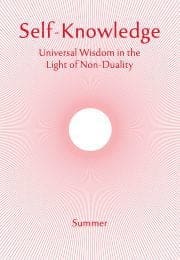The Trivial and the Tragic
When we learn of tragedies and disasters in faraway places, our hearts are moved, but the focus of compassion and concern is usually quick to fade, as the demands of daily life once again capture our attention. The charity appeal on radio or television, is followed by entertainment; the heartrending story in the newspaper is placed alongside an advertisement for perfume. Such is life. Such is death. In the words of Eliot, ‘Humankind cannot bear very much reality’.
Mishaps nearer home affect us more deeply and durably, and can change the whole trend of our thought. The passing of a loved one often marks a turning point in our conscious life. Yet even these sobering events, which make us think more deeply and wisely, are in immediate competition with the attraction of the trivial. ‘He had the sense of great things sweeping out of the shrouded night’, wrote E M Forster, ‘But he could not receive them, because his heart was still full of little things.’
People pass away, but our own passing is hard to imagine, and this is another topic we find distasteful; besides, there is not much we can do about it, so we understandably view such thinking as a waste of time.
But there is one type of self-reflection which, though acknowledging our mortality, can help to release new springs of positive energy if we make an intelligent use of it. This is the advice to live each day as if it were our last. This isn’t a call to live in gloom and cynicism, nor does it mean abandoning prudence in favour of carefree living. It is reminder to live carefully, to ensure that our mind is in the best possible condition. It is like preparing for meditation. If we know we shall be meditating within the coming hour, it is unwise to get angry with anybody or anything, because the after-effects of anger will invade our meditation. Likewise, to become so absorbed in a screenplay that all else is forgotten, means that our mind will have a crowd of second-hand thoughts to deal with when we sit and hope to achieve inner silence. Life therefore becomes an art if we live each hour as if we would shortly be engaged in meditation, and our life will be an inner adventure if the day as a whole were lived in the same spirit.
The principle also involves keeping in mind the deeper values of life and the idea of the ultimate reality as our true Self. It means minimising those actions and reactions that give us an uneasy conscience. And if our conscience is uneasy—which is a sign of psychological growth—we try to bring the mind to peace whatever our mental condition, by depending on the source of help within our own being, and drawing from that source the equanimity and power to carry on.
We human beings cannot fathom the meaning and purpose of great tragic happenings, or even why our own life may itself be burdened with illness or calamity. But we can learn about the deeper reality which is not touched by these outer changes, even by the change of death. We can learn to discern the presence of that reality in ourselves, when our mind is sufficiently quiet and prepared. Then we will gain reassurance from the reality itself. In the words of the Bhagavad Gita, ‘My devotee does not perish’.
There is also a deeper reason why our attention easily allows trivial and lightweight matters to fill our thoughts, and that few people can retain a balanced compassion or empathy. This is because our innermost Self or true being is bliss by nature, not pain or suffering. This being so, our mind naturally gravitates towards life’s joys and freedoms, and away from restriction. The real tragedy is to pass through life unaware of this dimension of our experience, while our greatest friend in both joy and sorrow is to have a mind that is sensitive to this higher life, and lives in constant communion with it.


